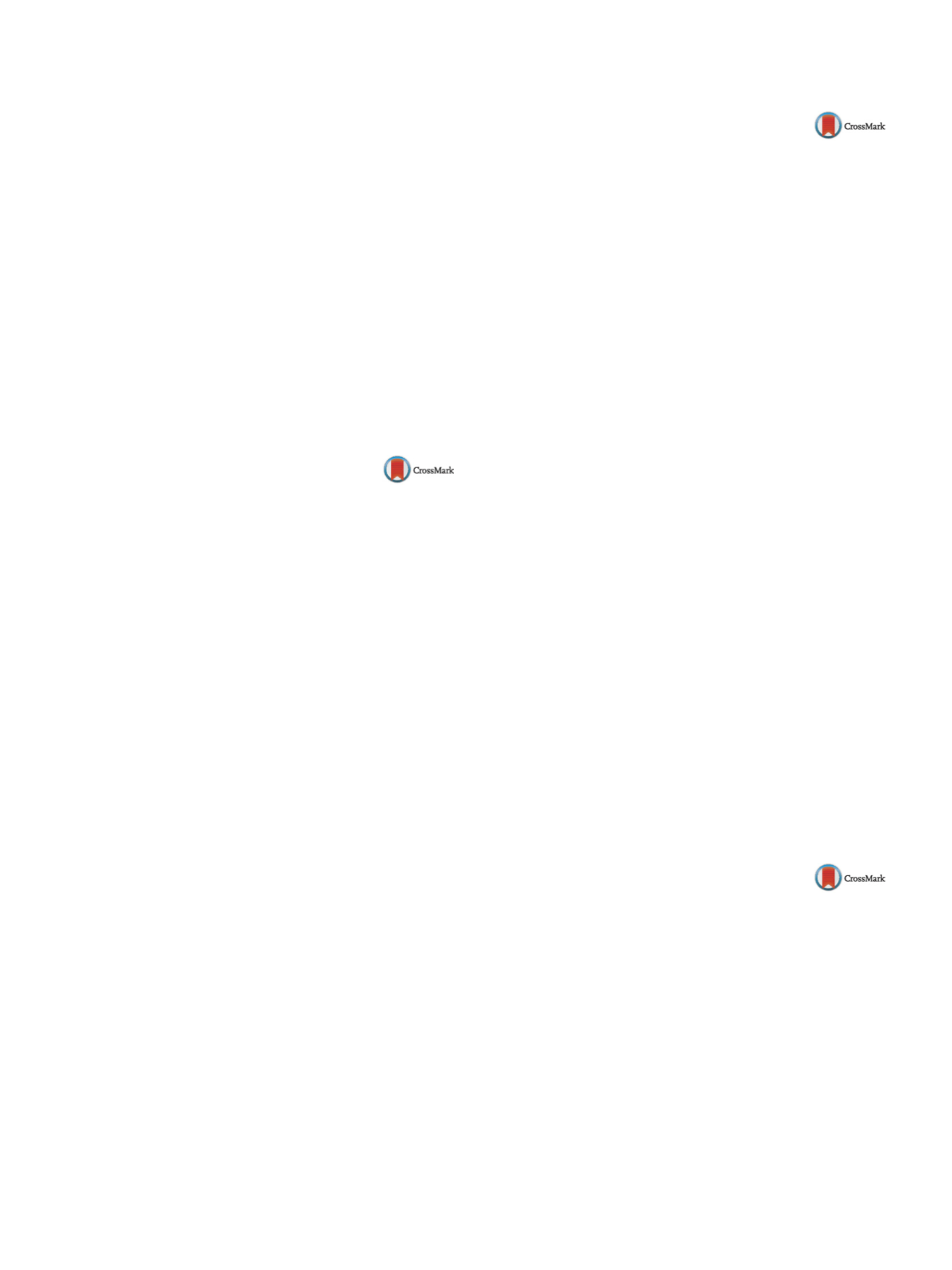

S610
25th European Congress of Psychiatry / European Psychiatry 41S (2017) S583–S644
Results
we noted that distribution of depression according to
gender has statistically significant differences. In the men group
the number of depressive individuals is 5 (11.1%;
P
< 0.01). In the
women group the number is 28 (37.8%;
P
< 0.01). Also it was stated,
that marital status does not influence the distribution of depressive
symptomatology level (
P
> 0.05). Distribution of anxiety symptoms
significantly differs by gender. In the group ofmen anxiety observed
in 1 patients (2.2%;
P
< 0.05), whilst in the group of women – in
13 patients (17.6%;
P
< 0.05). Gender proved to be irrelevant in the
occurrence of somatoformdisorders (
P
> 0.05); it is alsonot depend-
ent on marital status (
P
> 0.05).
Conclusion
Staff employed into hard working social environ-
ment experience a range of negative psychological effects such as
depressed mood, fatigue, and insomnia. Lack of leisure and lack of
time for walking cause dissatisfaction with life, which contributes
to the development of depression, anxiety and somatoform disor-
ders.
Disclosure of interest
The authors have not supplied their decla-
ration of competing interest.
http://dx.doi.org/10.1016/j.eurpsy.2017.01.963EV0634
Aspects of recovery and
resilience–factors enabling an
independent and fulfilling life
J. Krieger
1 ,∗
, V. Rößner-Ruff
2, D. Hoins
2, I.T. Graef-Calliess
21
Klinium Wahrendorff, Forschung und Entwicklung, Sehnde, OT,
Ilten, Germany
2
Klinikum Wahrendorff GmbH, Forschung und Entwicklung, Sehnde,
OT, Ilten, Germany
∗
Corresponding author
Introduction
The concept “recovery” takes the position that indi-
viduals with severe chronic psychiatric disorders can recover and
establish a certain degree of mental stability that can enable
an independent and fulfilling life. To sustain recovery different
variables and interdependent factors are needed, f.e. psychologi-
cal resilience and empowerment. Actually, there are few studies
focusing on the interdependency of recovery and resilience in
patients with severe chronic psychiatric disorders, especially with
an emphasis on overall psychiatric diagnosis and a longitudinal
section.
Objective
The study examines residential patients with severe
chronic psychiatric disorders who lived in a long-term care insti-
tution for psychiatric rehabilitation (SGB XII) in Lower Saxony and
who were able to move out and live by themselves in 2016. Persons
withmental retardation and patients who have spent more than 30
years in a long-term care institution will be excluded.
Methods
Randomised controlled trial based on a mixed-
methods-design and a longitudinal course (5 follow-ups within 24
months after the first interview).
Aims
Investigate factors for independent living on different lev-
els (like micro, meso, macro) with focus on recovery and resilience
by patients with severe chronic psychiatric disorders.
Results
First results of a pilot study and focus groups will be pre-
sented.
Conclusion
Results of investigation should be used in different
subject areas like identification of factors enabling independent liv-
ing and creation of effective therapy interventions for patients with
severe chronic psychiatric disorders who have lived in a long-term
care institution.
Disclosure of interest
The authors have not supplied their decla-
ration of competing interest.
http://dx.doi.org/10.1016/j.eurpsy.2017.01.964EV0635
The effects of a brief educational
programme added to community
mental health treatment to improve
patient activation and attendance:
A randomized controlled trial
M. Lara-Cabrera
1 ,∗
, M.B. Nesset
21
St Olavs University Hospital, Department of Psychiatry, Tiller
CMHC, Trondheim, Norway
2
Faculty of Medicine, Norwegian University of Science and
Technology, Department of Neuroscience, Trondheim, Norway
∗
Corresponding author.
Introduction
Though interest grows in improving patient activa-
tion in general medical health services, there is little evidence from
randomised controlled trials in mental health settings of how to
achieve this.
Objective
We aimed to evaluate the effects of a brief pre-
treatment peer-co-led educational intervention added to mental
health treatment. The intervention was developed and carried out
in cooperationwith user representatives, peer educators and health
professionals, and aimed at activating and preparing patients to
participate in own treatment.
Aims
To assess the 4months and 12months effects on patient
activation measure-13 (PAM-13) and attendance.
Methods
Patients from two community mental health centres
were randomised to a control group (CG,
n
= 26) receiving treat-
ment as usual, or an intervention group (IG,
n
= 26), consisting of
four-hour group pre-treatment educational seminar (peer-support
and encouragement to adopt an active role) followed by treatment
as usual.
Results
At 4months follow-up only the IG improved significant
on PAM-13. Preliminary results at 12months on PAM-13 and atten-
dance will be presented.
Conclusion
Brief pre-treatment education improves patient acti-
vation at 4months and could potentially have an effect on
attendance at 12months follow-up.
Practice implications
Pre-treatment education co-led in coop-
eration with user representatives, peer educators and health
professionals is a rational and easy way to activate and engage
outpatients in their own health care process.
Clinicaltrials.gov Identifier: NCT01601587
Disclosure of interest
The authors have not supplied their decla-
ration of competing interest.
http://dx.doi.org/10.1016/j.eurpsy.2017.01.965EV0636
Health education in caring for an
individual with psychic suffering:
An experience report
E.M.B. Lira
1 ,∗
, A.O. Silva
2, L.J.M. Santos
2, Y.L. Vasconcellos
2,
E.E.L. Paiva
2, G.K.G.D. Bittencourt
2, F.P. Silva
2, T.J.S. Teófilo
3,
S.C. Vasconcelos
21
Procape Hospital, surgical ward, Recife, Brazil
2
Federal University of Paraíba UFPB, Nursing, João Pessoa, Brazil
3
Universitary Hospital, Nursing, João Pessoa, Brazil
∗
Corresponding author.
Introduction
Integral nursing for an individual with a mental dis-
order requires care, management and educational skills to improve
the quality of life of the patient.
Objectives
Describes a health education experience in caring for
an individual with psychic suffering.
Methods
Activities were developed at a psychosocial care center
in the city of João Pessoa, Brazil, with students in the third year of
nursing school. Three sessions were held on the topic “self-efficacy
in the use of psychoactive drugs”. Related factors, such as motiva-


















